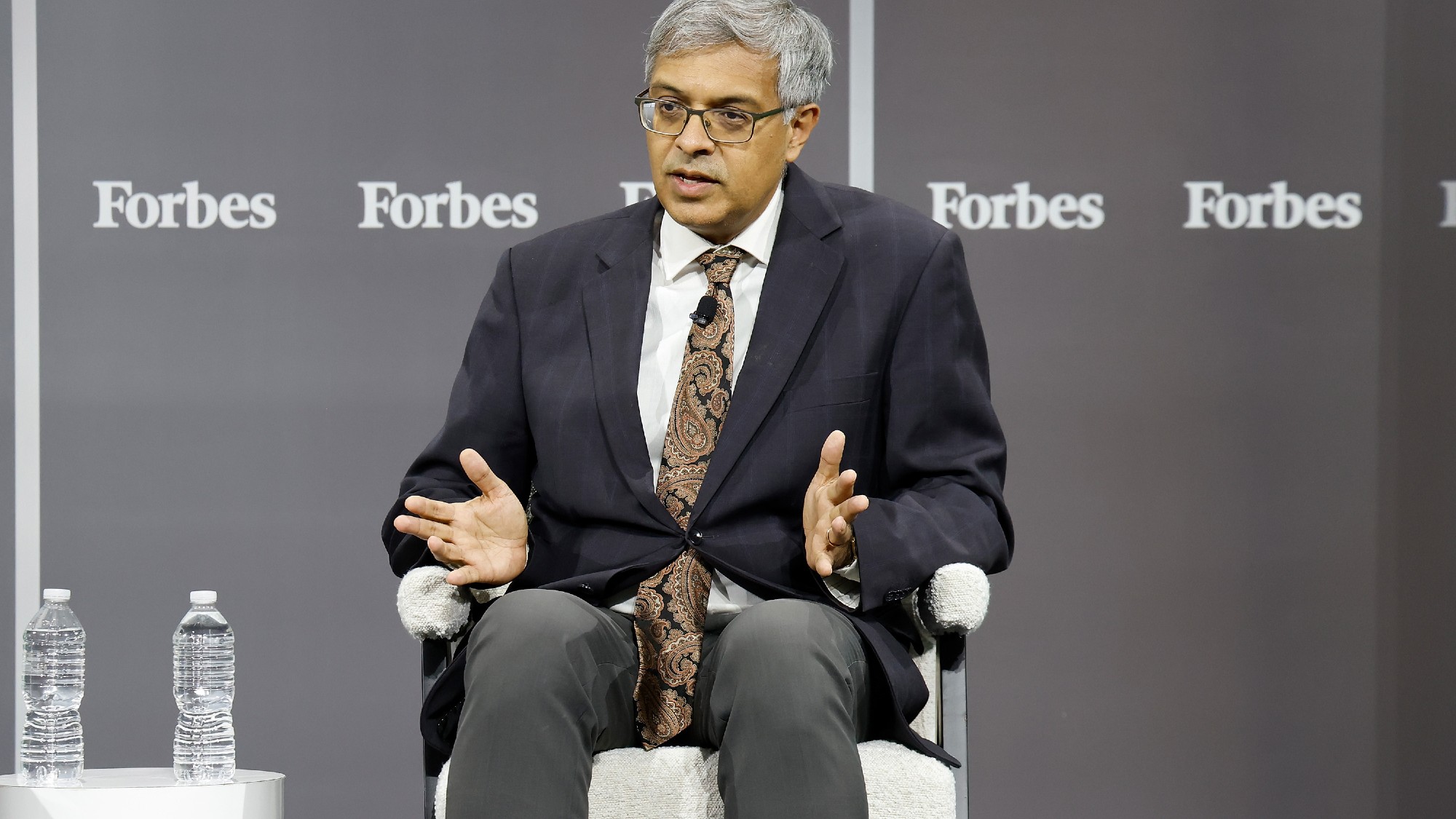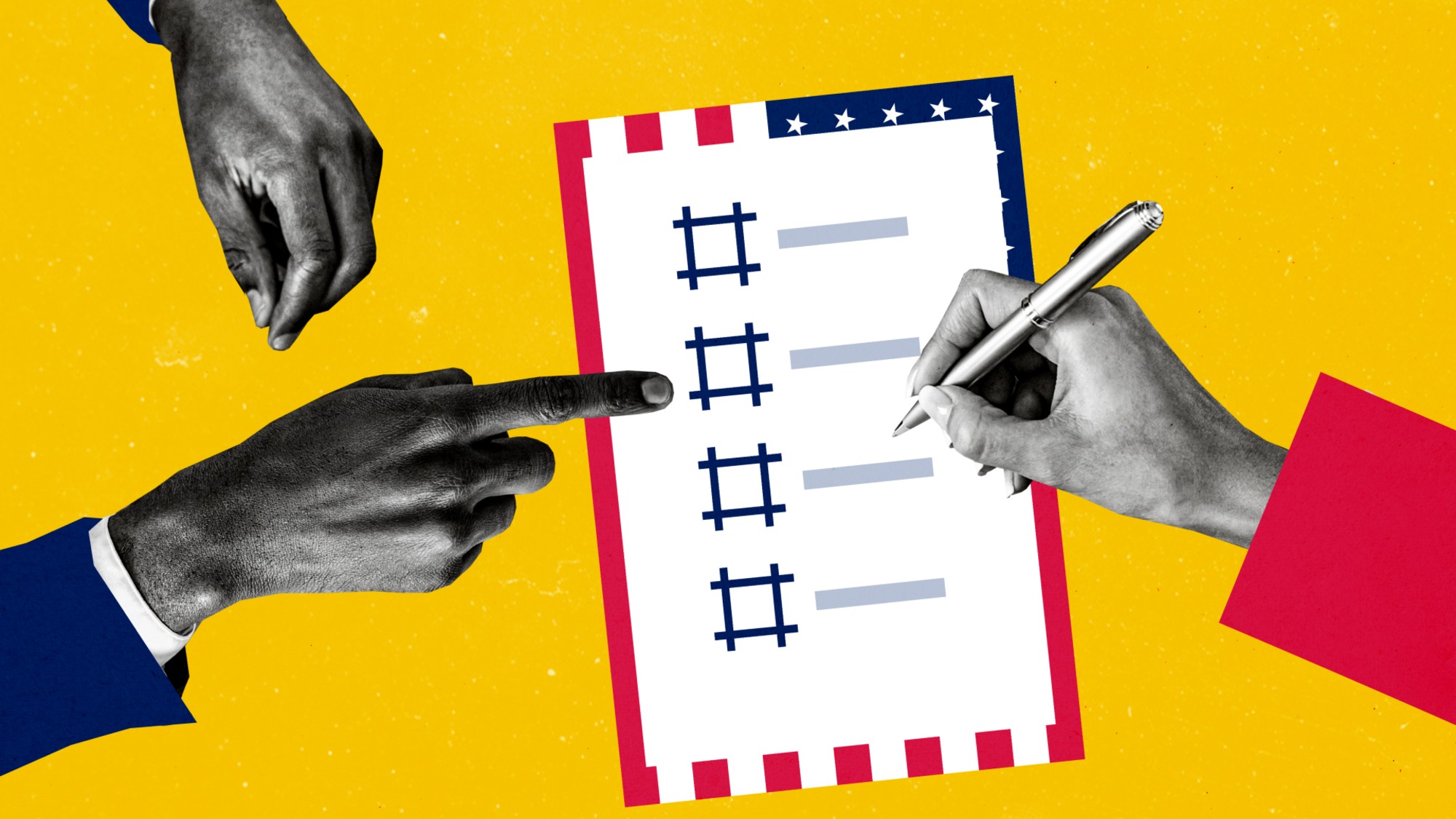Jay Bhattacharya: another Covid-19 critic goes to Washington
Trump picks a prominent pandemic skeptic to lead the National Institutes of Health


A free daily email with the biggest news stories of the day – and the best features from TheWeek.com
You are now subscribed
Your newsletter sign-up was successful
Before President-elect Donald Trump chose Dr. Jay Bhattacharya, a Stanford University professor of medicine, to lead the National Institutes of Health, Bhattacharya rose to prominence during the Covid-19 pandemic. The doctor opposed lockdowns and, later, vaccine and mask mandates.
An elite doctor takes on the Covid consensus
Bhattacharya was born in Kolkata, India, and emigrated to the United States when he was a child. He attended Stanford University for both his undergraduate and Ph.D. work in economics as well as for his M.D. He first worked for the RAND Corporation as an economist during the late 1990s before securing a position at the Stanford School of Medicine. At Stanford, Bhattacharya has been a prolific researcher who focused on issues of aging, nutrition and wellness. He still serves as the university's director of the Center for Demography and Economics of Health and Aging.
In 2020, he became one of the leaders of a movement pushing back against stay-at-home orders and business closures early in the Covid-19 pandemic. A widely shared March 24, 2020, Wall Street Journal op-ed that he co-authored with Eran Bendavid speculated that no more than 20,000 to 40,000 people would die of the virus in the United States. A policy of indefinite lockdowns "may not be worth the costs it imposes on the economy, community and individual mental and physical health," they said. In terms of the "claim-staking" article's accuracy, "for every death his estimate implied, there were, in the end, more than 35," said David Wallace-Wells at The New York Times.
The Week
Escape your echo chamber. Get the facts behind the news, plus analysis from multiple perspectives.

Sign up for The Week's Free Newsletters
From our morning news briefing to a weekly Good News Newsletter, get the best of The Week delivered directly to your inbox.
From our morning news briefing to a weekly Good News Newsletter, get the best of The Week delivered directly to your inbox.
Bhattacharya was also one of the three initial co-authors of the "Great Barrington Declaration," an October 2020 anti-lockdown open letter that was eventually signed by thousands of public health leaders and scientists. Existing Covid mitigation policies, including business restrictions and school closures, were "producing devastating effects on short and long-term public health," the authors said. Instead, they recommended a policy of "focused protection," which would allow "those who are at minimal risk of death to live their lives normally" while concentrating mitigation measures on the highest-risk individuals. The letter's recommendations are "the epitome of arrogance," said Brooks B. Gump at U.S. News and World Report. Critics charged that the Great Barrington Declaration's "approach would endanger Americans who have underlying conditions" and could result in perhaps a half-million deaths," said Apoorva Mandavilli and Sheryl Gay Stolberg at The New York Times. More than 1.2 million Americans have died of Covid-19 since March 2020.
Bhattacharya also published numerous scholarly studies about Covid-19, including a 2020 European Journal of Clinical Investigation paper. Assessing the success or failure of various mitigation strategies in containing the spread of the virus, "we fail to find an additional benefit of stay-at-home orders and business closures," they said. Bhattacharya also opposed mask mandates in schools. Masking schoolchildren can interfere with communication and "exacerbates the chances that a child will experience anxiety and depression," he wrote in a 2021 paper with Neeraj Sood.
Mixed reactions
Reactions to Bhattacharya's nomination have been mixed, breaking down largely along familiar Covid battle lines. Bhattacharya is a "serious scientist with a track record of success," said Justin Perry at The Dispatch, praising his courage in challenging the public health consensus during the pandemic. Bhattacharya's appointment will be a "major victory for science and academic freedom," said John Tierney at City Journal, who expects Bhattacharya to use his funding discretion to reward research universities that uphold conservative viewpoints about academic freedom. Bhattacharya is "actually qualified," said Zeynep Tufekci at The New York Times. While many of his predictions were wrong, he should be appreciated for forcing officials to consider the "societal cost of prolonging early pandemic measures," said Tufekci.
Bhattacharya is an "A-tier Covid minimizer" whose appointment is "very worrying in the context of what the NIH does," said Beatrice Adler-Bolton at the Death Panel podcast. His appointment is "a nod not only toward Covid and lockdown skeptics but also to those who might place economic concerns over public health," said Hafiz Rashid at The New Republic.
A free daily email with the biggest news stories of the day – and the best features from TheWeek.com
David Faris is a professor of political science at Roosevelt University and the author of "It's Time to Fight Dirty: How Democrats Can Build a Lasting Majority in American Politics." He's a frequent contributor to Newsweek and Slate, and his work has appeared in The Washington Post, The New Republic and The Nation, among others.
-
 How the FCC’s ‘equal time’ rule works
How the FCC’s ‘equal time’ rule worksIn the Spotlight The law is at the heart of the Colbert-CBS conflict
-
 What is the endgame in the DHS shutdown?
What is the endgame in the DHS shutdown?Today’s Big Question Democrats want to rein in ICE’s immigration crackdown
-
 ‘Poor time management isn’t just an inconvenience’
‘Poor time management isn’t just an inconvenience’Instant Opinion Opinion, comment and editorials of the day
-
 Judge orders Washington slavery exhibit restored
Judge orders Washington slavery exhibit restoredSpeed Read The Trump administration took down displays about slavery at the President’s House Site in Philadelphia
-
 How are Democrats turning DOJ lemons into partisan lemonade?
How are Democrats turning DOJ lemons into partisan lemonade?TODAY’S BIG QUESTION As the Trump administration continues to try — and fail — at indicting its political enemies, Democratic lawmakers have begun seizing the moment for themselves
-
 ICE eyes new targets post-Minnesota retreat
ICE eyes new targets post-Minnesota retreatIn the Spotlight Several cities are reportedly on ICE’s list for immigration crackdowns
-
 Judge blocks Hegseth from punishing Kelly over video
Judge blocks Hegseth from punishing Kelly over videoSpeed Read Defense Secretary Pete Hegseth pushed for the senator to be demoted over a video in which he reminds military officials they should refuse illegal orders
-
 ‘This is something that happens all too often’
‘This is something that happens all too often’Instant Opinion Opinion, comment and editorials of the day
-
 How did ‘wine moms’ become the face of anti-ICE protests?
How did ‘wine moms’ become the face of anti-ICE protests?Today’s Big Question Women lead the resistance to Trump’s deportations
-
 Judge blocks Trump suit for Michigan voter rolls
Judge blocks Trump suit for Michigan voter rollsSpeed Read A Trump-appointed federal judge rejected the administration’s demand for voters’ personal data
-
 Trump’s plan to ‘nationalize’ US elections
Trump’s plan to ‘nationalize’ US electionsTalking Points States oversee voting. Will Republicans take over?
